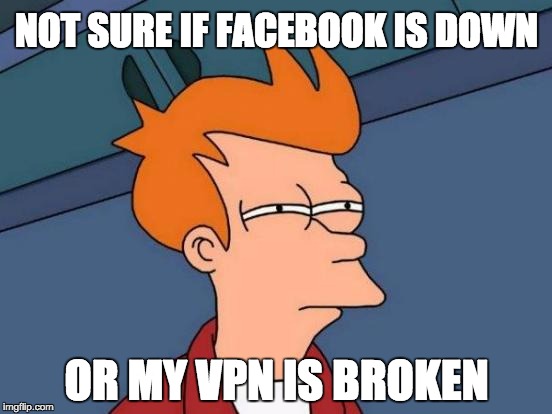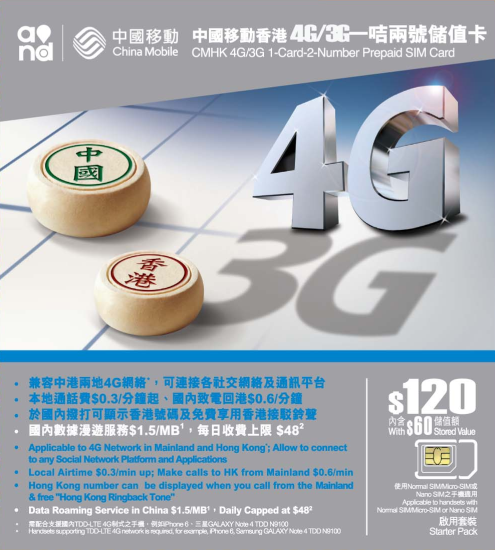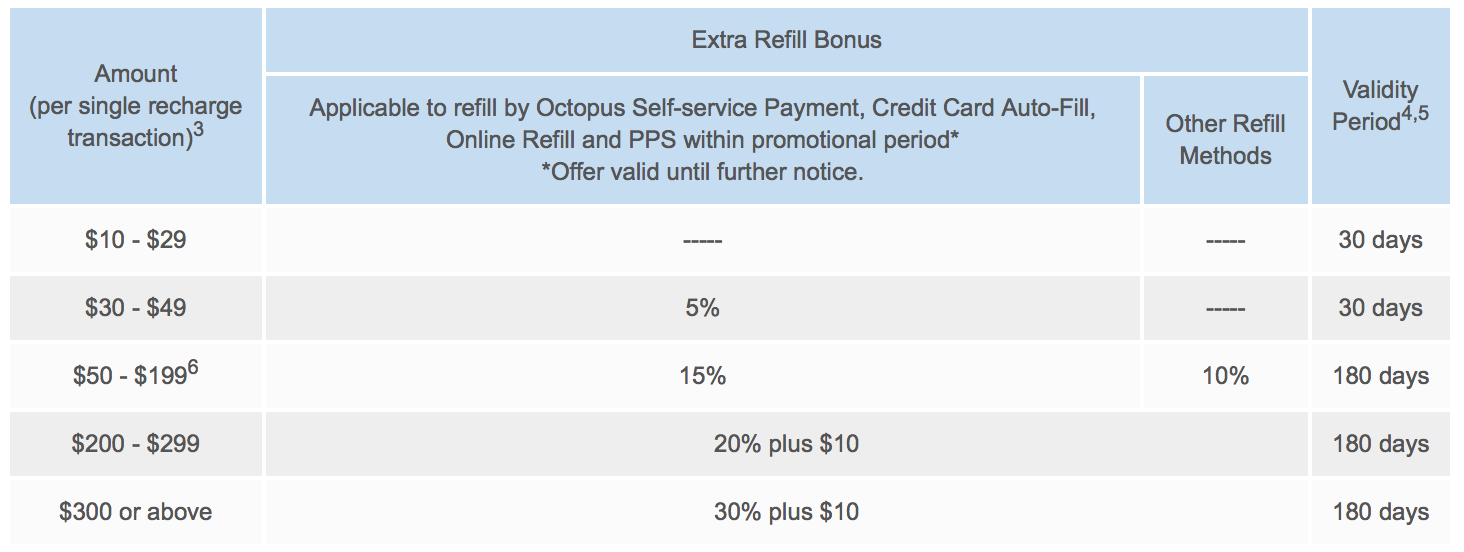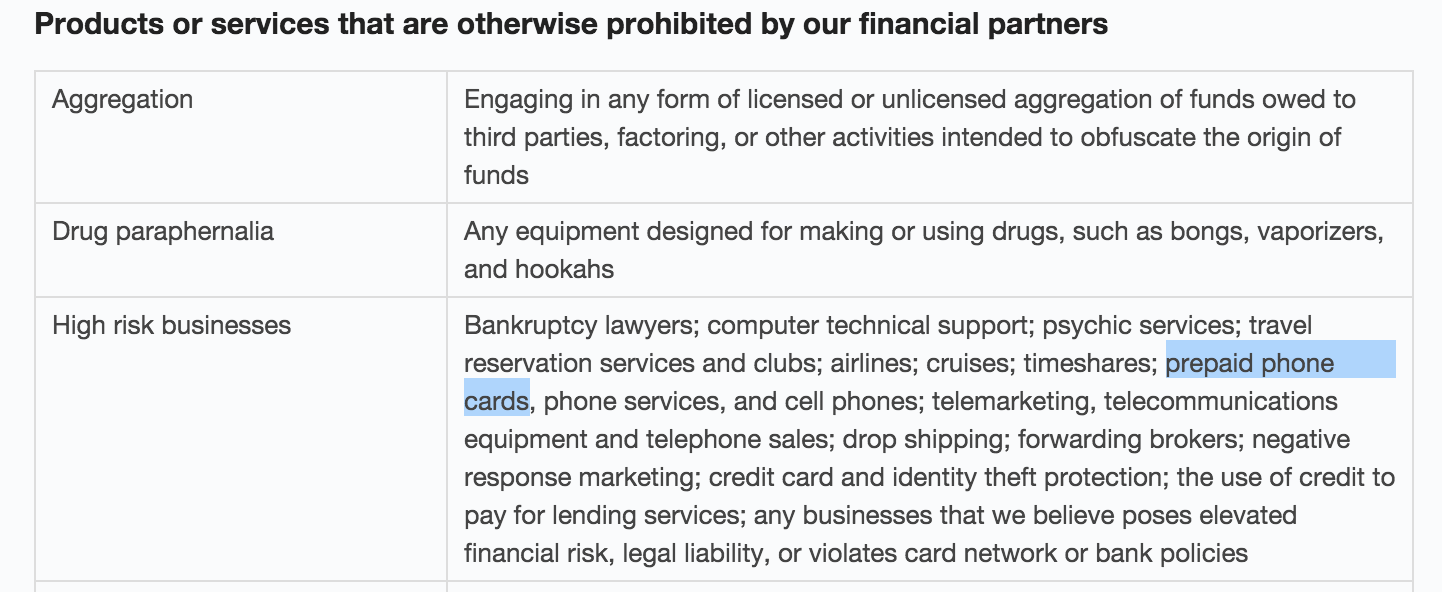Ask someone to make a list of #ChinaProblems and the Great Firewall is going to be close to the top.
The Great Firewall, usually referred to online as GFW, is a system of network hardware, software and policies that work together to wreak havoc on everyone’s favorite non-Chinese apps and websites.
To someone used to living outside of the country, using the Chinese Internet is an exercise in masochism. You get Facebook notifications on your iPhone, but Facebook can’t connect. You hear your "you’ve got mail notification"[1] but Gmail won’t open. A friend tries to share a file on Dropbox with with you, but that doesn’t work either. It's enough to make you want to throw your expensive smartphone off a bridge and stab yourself with a chopstick.

The unspoken purpose of the GFW is to control citizens’ access to information possibly critical of or embarrassing to the government, thus removing a threat to Party rule. A secondary benefit is to provide a competitive advantage to local Internet companies by protecting the from outside competition.
Whatever the reasons for GFW, people who find themselves visiting or living in China need to access services blocked by it. There are many techniques, tools, and services that purport to get you over the wall: hosts file hacks, proxy servers, switching DNS servers, Tor bridges, and, yes, the well-know VPN service. All of these methods worked at one point or another and continue to be useful for unblocking specific sites or services.
These days, most people climbing over the GFW have migrated to one or more VPN services which are generally better at unblocking all blocked sites. However, the Chinese government hasn’t been oblivious to the rise of the VPN and has been in an ever escalating arms race with VPN providers, blocking certain servers or VPN technologies only to have VPN services switch to new ones.
It’s frustrating, costly, and time consuming for both VPN providers and consumers who can never be sure if and when something will work. Connections can and do break at anytime.
What if I told you that not only is there a much easier way to hop over the Great Firewall, but that it’s endorsed and even sold by the Chinese government? A no-questions-asked, no-name-registration-required, passport-not-needed, leave-your-address-proof-at-home censorship avoidance method available in plain view for anyone to use?
{% blockquote %}
“Impossible!” you say, “The Chinese government would never help subvert its own censorship regime, and if they had I would have heard about it!”
{% endblockquote %}
I’m sorry to say, you’ve been out of the loop. Don’t worry though, I’ll fill you in!
The power of 3
The three big Chinese telecom companies, China Mobile, China Unicom and China Telecom, are all owned by the Chinese government.[2] Despite having free reign over the domestic Chinese market, these firms also have ambitions that stretch outside of the Great Firewall. Two of these companies, China Unicom and China Mobile are relatively active here in Hong Kong. China Unicom sells phone service in Hong Kong as a virtual mobile network and China Mobile has its own physical network and airwaves licenses.

Both compete aggressively in the highly competitive Hong Kong mobile market and are always looking for a leg up on the competition. One of the ways they’ve achieved this, is using the fact that they own huge networks north of the Shenzhen River to create attractive phone service bundles targeted at Hong Kongers who travel frequently to China. Because these companies own the networks in China and cross-border fiber, they can offer inexpensive cross border roaming services that undercut the other Hong Kong competition.
Because of the way mobile networks and data roaming works, when you travel abroad or connect to a network that isn’t your home provider, the data is sent back to that home provider through an private, encrypted tunnel so that your home phone company can keep track of and bill you for the data that you use. A beautiful side effect of this system is that it allows your data to sneak over the Great Firewall. Which means you’re able to get on Facebook and Google just like you can at home. In fact, as far as Facebook and Google know, the addresses on your data still appear as if you’re at home.
Great! So I can just use my home phone roaming in China?
That’s one option! Most people try this but find out that it’s super slow and/or expensive. This is because your home provider also needs to buy very expensive connections in and out of China and most aren’t willing to spend that much.
The good news is that both China Mobile and China Unicom will sell you phone cards or phone plans in Hong Kong that let you get over the Great Firewall while you’re in the Mainland! Since China Mobile and China Unicom own big fat cross border Internet pipes, their data roaming doesn’t suffer from the same speed constraints as other companies. Of the two, China Mobile is the better option since it owns physical networks on both sides of the border.
Wow! Cool! How do I get started?
The first thing you have to do is make sure your phone supports the right technology to get the fastest speeds on China Mobile. Right now, China Mobile uses TDD-LTE on bands 38, 39 and 40 in the mainland and FDD-LTE bands 3, 7 and TDD-LTE band 38 in Hong Kong. Very few phones support both of these - most Android phone support either TDD-LTE or FDD-LTE, not both, so you many end up with two phones. If you’re an iPhone user, the iPhone 6s supports all of these bands as do certain models of the iPhone 6 and 5s.[3] If you end up with a phone that doesn’t support the right LTE bands, you’ll end up with slow almost unusable Internet that will make you wish you never even tried.

Next, you’ll need to acquire a China Mobile Hong Kong 4G/3G 1-Card-2-Number Prepaid SIM Card in Hong Kong and activate it before you leave the city. You can buy it with cash or credit card at any China Mobile Hong Kong (CMHK) location in Hong Kong. There’s even one on the departure level of Hong Kong International Airport so you can grab it right before your flight to Shanghai. No ID, registration or proof of address is necessary.
Like its name suggests, this sim card will give you two phone numbers, one Hong Kong number and one number in the Mainland (usually a Guangzhou number). Your friends on both sides of the border will be able to call either to reach you.
You’ll then need to decide which data plan or plans you’d like to subscribe to. If you do nothing, LTE data in Hong Kong or the Mainland will cost you HK$48 (~US$6.20) per day for an unlimited amount. Despite claims on the website that your data will be slowed down to a crawl after 1 GB each day, I have been able to use well in excess of that with no throttling.
The HK$48 per day option is pricey for extended use, but well worth if fast, reliable, low latency Internet is important for your job or your sanity. At HK$1440 a month, it is significantly cheaper than the cost of a commercial leased line in a Chinese city and is GFW-free.

A more wallet friendly option is the HK$198 per month plan which gives you 2GB of data to use in Hong Kong or China. While this is marginally more expensive than current local plans offered in the Mainland, it is worth freeing yourself from the battery sucking frustration of VPNs on your phone.
You can top up your prepaid card online at CMHK’s website using your Visa or Mastercard. They even give you an over 30% bonus, so reloading HK$300 gets you HK$400 of credit, effectively lowering the data prices.

But I’m not in Hong Kong or visiting Hong Kong, what do I do?
Glad you asked! I was considering setting up a site to sell already activated sim cards to people who can’t stop in Hong Kong, but realized doing so would be more complicated than I had imagined. I wanted to accept credit card payment, but my favorite payment processing service, Stripe, lists prepaid phone cards as a prohibited item. This is understandable as prepaid phone cards are in many parts of the world as good as cash, so there would be a high risk that a fraudster would order them with a stolen credit card.

This would usually be the end of the story. If something is too risky to sell by credit card, PayPal and to a lessor extend banks are even less of an option. One complaint from the consumer or owner of the stolen credit card and, if I was lucky, I'd only be out the money I spent on the phone plus stuck with a chargeback fees. If I was unlucky, my merchant account or bank account and its funds would be frozen.
If only there was something that could solve this problem...
Bitcoin!
Selling the phone cards for Bitcoin is the solution! Bitcoin eliminates the risk of nonpayment or chargeback for the merchant and shifts the risk of the transaction to the customer. This is usually a bad thing, but in high risk product categories like prepaid phone cards, this characteristic of Bitcoin enables the opportunity for a sale and creates markets where they otherwise would not exist.
After getting this far into my analysis of the problem, I decide I really don’t have time for another side project.
I immediately thought of my friend +liongrass and his Too Free to Fail store that sells items for Bitcoin.
We just made our first sale after being online for two hours! Thank you @larrysalibra! Your keychain is on the way as soon as the post opens
— Too Free To Fail (@toofreetofail) August 23, 2015Prepaid phone cards that help users circumvent the Great Firewall of China seemed like a perfect fit for a store focused on freedom. Leo agreed and CMHK prepaid phone cards arrived in his store today!
Prepaid seems expensive and a hassle. Any better options?
Subscribing to a CMHK 4GPro postpaid plan will get you fast, uncensored data in Hong Kong China at a marginal cost of HK$30 (US$3.87) per gigabyte of data. If you’re not a Hong Kong resident and/or don’t have a Hong Kong company, subscribing might be a hassle and involve large deposits.
The postpaid option is what many cross-border business people in Hong Kong and foreigners living right across the border in Shenzhen select.
What’s your favorite way to get online in the Mainland? Any tips or tricks? Let me know in the comments or on Twitter!
Showing my age. https://www.youtube.com/watch?v=DGOgSPVBmIE ↩︎
That’s why they’re called State Owned Enterprises (SOE). ↩︎
To learn which bands your iPhone supports, check out Apple’s LTE page. ↩︎

